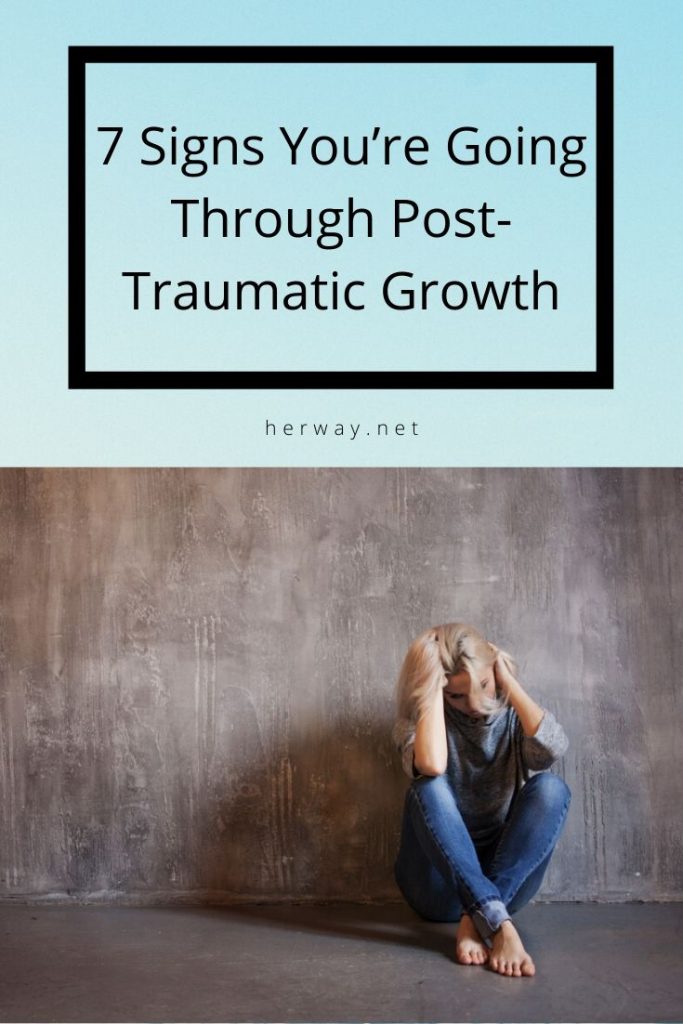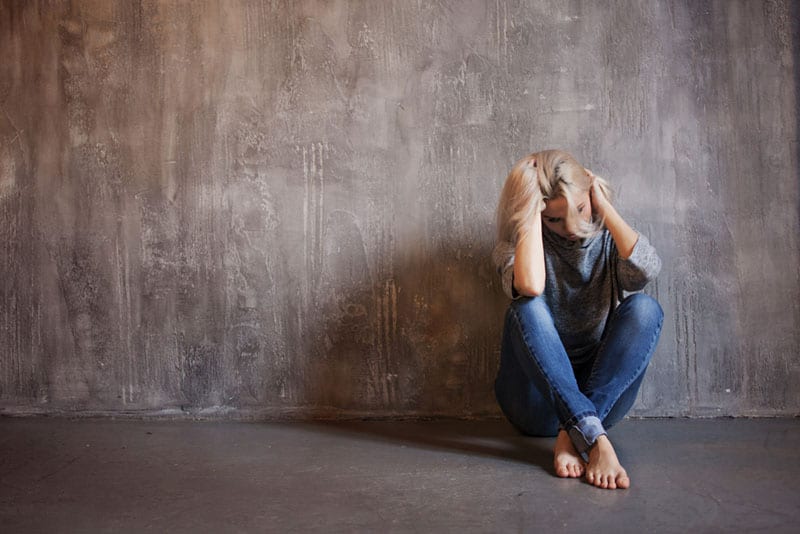7 Signs You’re Going Through Post-Traumatic Growth
When you hear the words such as ‘abuse’ or ‘emotional trauma’, you only think of the worst possible things. You relate it to pain, destruction, heartache, and permanent damage.
However, despite all of this being true, the path of overcoming trauma can also bring you many positive changes that make you grow as a person.
But how can you know whether you’re still processing your trauma or you’re already on the journey of post traumatic-growth?
Just read the signs bellow and if you can relate to some or all of them, congratulations—you’re on the right track.
1. You start letting people in

When you experience a trauma, the first thing it impacts are your relationships with others.
You might cut ties with the one who hurt you and did you damage, but even after you do so, you can’t help yourself but expect the same treatment from everyone else.
That is why one of the main indicators that you’re in the process of recovery is the fact that you’re starting to let people in once more.
You become more open to new experiences and slowly, begin to grasp the idea that not everyone is like your ex.
You revive old friendships and family relations, and you even stop being scared of the possibility of a new romance.
Yes, you’re still scared of everything that might happen, but you no longer allow your fear to take control over you and to dictate the course of your life.
2. You find the strength to forgive

When you’re in the post-traumatic period, you could swear on your life that you would never forgive the person who caused you your pain.
You curse the day he was born and wish him all the worst, which is a perfectly natural reaction.
Well, one of the major signs that you’re growing as a person after going through a trauma is that now, you find the strength to forgive.
Of course, you can’t forget everything that has happened, but at least, you’re no longer consumed by resentment towards your abuser.
Revenge and hate are not your primary focus anymore. You don’t allow grudges and other negative emotions to take what’s best from you and eat you alive.
However, the crucial thing here is that you would never take back this guy who’s done you harm, just because you chose to be the bigger person and forgive him.
This doesn’t mean he’s pardoned from his sins, and it certainly doesn’t make all that he’s done okay.
Nevertheless, all you want is to be at peace with yourself, and you have learned that forgiveness is the way to reach it.
3. You learn from your mistakes

Besides forgiving the one who caused you this trauma, when you’re in the middle of mental and emotional growth, you also find a way to forgive yourself.
You stop looking within yourself for the causes of everything that has happened: you no longer see yourself as not good enough or unlovable.
Also, you forgive yourself for not knowing better, for wasting years of your life on someone who never deserved your presence, for not walking away in time, for putting up with this bullshit and for settling for less.
No, you don’t run from responsibility, and you definitely own up to your mistakes, but you stop resenting yourself for them.
After all, you’re also a human being, and this experience has taught you to be more gentle with yourself.
4. You’re grateful for everything you’ve been through

After experiencing a painful emotional trauma, you’re not only angry at yourself and the man who did you harm—you’re also furious at the Universe for allowing this to happen.
You know you didn’t do anything to deserve all of this pain, so you can’t help but be pissed over life’s injustice.
Nevertheless, your perception changes during post-traumatic growth. Instead of seeing your loss as a curse, you see it as a blessing.
In fact, you become grateful for everything you’ve been through, especially the bad things.
You thank God for opening your eyes and for teaching you valuable life lessons.
Now you understand that everything happens for a reason and for your own benefit, and you realize that there is a little bit of good in every bad situation.
5. You reevaluate your priorities

Let’s face it—all of us waste our energy on objectively irrelevant stuff.
We crack our brains open about people who don’t matter and lose precious moments of our life worrying about problems that won’t be important in a few days, let alone years.
However, only after something serious happens, you understand what a fool you were all along.
You see that nothing and nobody is worthy of your nerves, and you finally sort your priorities right.
When you’re in the middle of post-traumatic growth, you put yourself first, without being selfish.
You cut ties to everyone who does you harm, and you get closer to the ones who deserve a place in your life.
You start considering yourself lucky for being alive, sane, and surrounded by the people you love, and you don’t let every slight inconvenience bother you.
6. You become stronger

Even though many people expect trauma to destroy them completely, this is actually a common misconception.
Yes, going through a painful experience breaks you into pieces.
But after a while, when you recover from the initial shock, you pick the broken pieces of yourself up, you glue them back together, and this updated version of yourself becomes stronger than it ever was.
This is exactly what happened to you—you see the inner strength which is growing inside of you.
You see that you can’t be as easily harmed as before and that nothing and nobody can hold you back.
7. You start loving yourself more

Most importantly, post-traumatic growth brings you more self-love than you even imagined having.
Being brave enough to put up with all of this pain without allowing it to crush you beyond repair makes you proud of yourself.
It makes you respect yourself more instead of expecting someone else to give you a sense of worth.
It helps you see that you only have yourself to always rely on, and it makes you see yourself as a valuable person.








